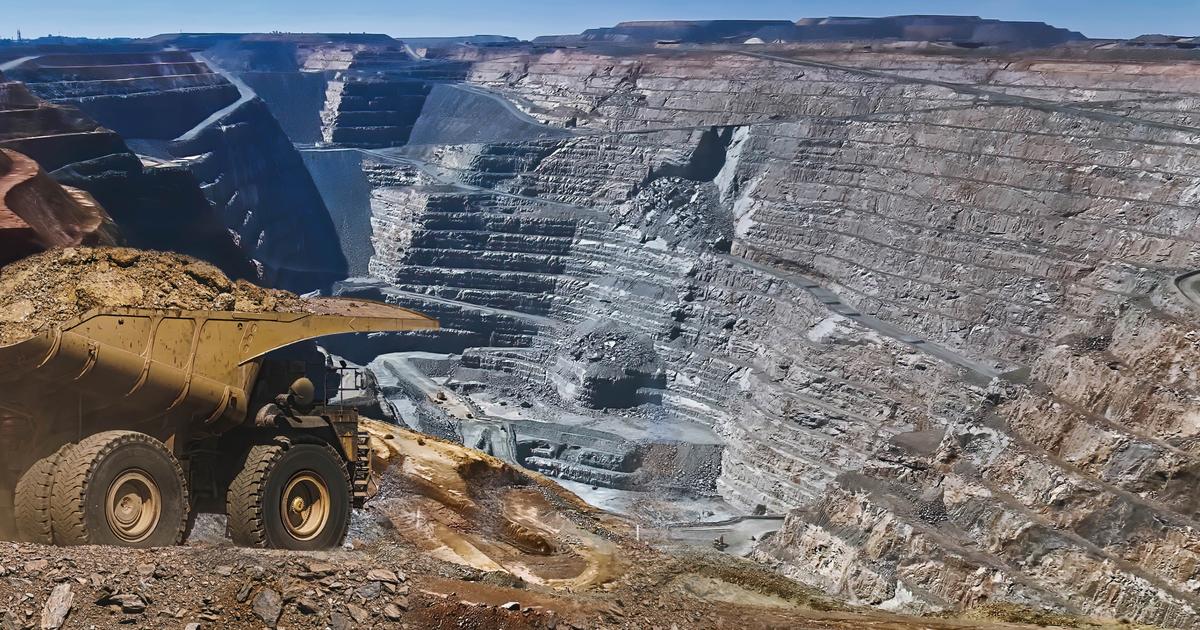The Tecoltemi ejido is seething with unusual nervousness.
It looks like harvest season, even though the corn stalks have been dry for months.
It's not that.
Don Leoncio Lobato is tuning the new violin and it can only mean that something important is being prepared.
Other ejidatarios look for the 'No to the mine' banners, stored in some warehouse that no one can locate.
“Where did they stay?”, they wonder, while Alejandro Rivera silently rehearses a speech that he has learned by heart and that begins with: “Mr. Minister, in the most attentive way…”.
In a few hours, Rivera, Lobato and their colleagues from the ejido commissioner will have a preliminary hearing by
zoom
with Jorge Mario Pardo Rebolledo, the minister of the Supreme Court of Justice responsible for their case. They have installed a small table for the computer under a blue tarp, on a hill surrounded by nopales near the town. They want the minister to see on his screen the rugged landscape of this corner of the State of Puebla. That's what the trial that began almost seven years ago is about; of the solid and thirsty land that feeds the community and that they believe is threatened by the project of a mine.
Instance after instance, resource after resource, the name of Tecoltemi, an ejido of just 300 people, has finally penetrated the halls of the Supreme Court.
The highest court is discussing this Wednesday whether to cancel two concessions of 14,229 hectares granted by the Government in 2003 and 2009 to the Canadian Almaden Minerals and whether, in addition, it declares some articles of the Mining Law unconstitutional for violating the rights of indigenous peoples.
The case may set a precedent and has caught the attention of the government and the industry.
View of the Sierra de Puebla near the ejido of the town of Tecoltemi, in the municipality of Ixtacamaxtitlán, Puebla, Mexico.
Monica Gonzalez
The road has been tortuous. Nobody warned the peasants of Tecoltemi that their territory was being concessioned or that they could soon be neighbors of an open-pit mine. They began to suspect something when they saw some yellow helicopters flying over the mountains.
The ejidatarios had to present a public request for information in order to clear up any doubts. The answer came in 2015, 12 years after the Government granted the first permit. And, indeed, through the territory of Tecoltemi there were two concessions with a validity of 50 years, extendable up to 100. “Nobody asked us. Everything was being done in secret,” Lobato, a 72-year-old peasant and amateur violinist, says in a grave voice, well wrapped up in four layers of clothing to keep out the cold. He is one of the three names that appear in the amparo lawsuit representing the community.
Almaden Minerals, based in the city of Vancouver, Canada, began prospecting in 2001 but it was not until 15 years later that the potential was confirmed: 73 million tons of ore, including gold and silver. The focus of interest was 466 hectares, a few kilometers from Tecoltemi. There a cut would be opened that would reach 400 meters deep.
Solve it the hard way or by the "quiet way".
At first, Margarito Díaz, a 65-year-old peasant, hesitated.
When they received the response to the request for information, the ejidatarios met next to the school, a white-painted concrete building, to decide what to do.
"Many were afraid of confronting the authorities, but with the support of the lawyers, people had more courage," recalls Díaz.
After about three hours of debate, they voted by a show of hands and the amparo solution was imposed.
The road to the Supreme Court
The key to the case is the lack of prior consultation. Mexico has signed Convention 169 of the International Labor Organization that requires consultation with indigenous peoples before carrying out projects that affect them. The Mexican Constitution also recognizes that right. However, the Ministry of Economy did not do so before granting the concessions. The agency argued during the trial of first instance that the Mining Law did not oblige it to carry it out and that, in any case, the population did not prove its connection with the territory, says Itzel Silva, from the Fundar organization, one of Tecoltemi's lawyers. .
Almaden has taken up the thesis of the scant indigenous presence. In the Environmental Impact Statement (MIA), presented by the mining company in 2018, it is stated that, according to official figures, the indigenous population is 2.3% in the area of influence of the project. In the field work, "only one older adult woman was identified in the town of Zacatepec, who despite knowing the Nahuatl language, no longer practices it, and considers that she does not have self-ascription to any indigenous ethnic group," the document reads.
Tecoltemi, which is part of the concession but not in the project's “area of influence”, claims to be indigenous even though Nahuatl has been in decline for decades.
The older ones heard it from their grandparents and they still mumble it;
they can greet with a 'how did you wake up?'
in the language of their ancestors.
Young people no longer.
“One adapts to modernity.
We don't bring indigenous clothing either because we can't get the material.
That does not mean that we are not part of an original people,” says Raymundo Romero, a 36-year-old peasant who wears a plaid shirt and who speaks with fascination about the pleasures of the countryside.
The residents of Tecoltemi have denounced being afraid of the effects on the health of the population and the diseases caused by mining. Monica Gonzalez
In addition to the cancellation of the concessions due to the lack of consultation, the amparo claims the unconstitutionality of some articles of the Mining Law, among them the one that establishes that this activity is "preferential over any other use of the land." Kind of a blank check. “The law facilitates the delivery of the territories to the companies. It is a legal framework specifically created to remove obstacles,” says Silva, responsible for the complaint together with Diana Pérez, from the Tiyat Tlali Council. "The case can become a tool for the towns that are fighting." Currently, 8.6% of the country is concessioned to mining companies and the industry contributes 2.3% of GDP, according to the Chamber of the sector.
When the judge of first instance suspended the concession after admitting the amparo, the company tried to renounce the piece of territory that corresponded to Tecoltemi so that the lawsuit would be without support. Nor did he lose anything because the focus of his exploration was a few kilometers from the community. A collegiate court, however, rejected the request because there was already a judicial suspension on the concession. Thus, the case has been able to advance to the highest court.
If, as Minister Jorge Mario Pardo Rebolledo proposes in his ruling project, the concession is cancelled, it would be the first such decision made by the highest court, according to Tecoltemi's lawyers.
On the other hand, the Supreme Court has avoided, until now, going into the depths of the constitutionality of the Mining Law and Pardo Rebolledo does not do so in this case either.
The minister wields the power of the State to decide on natural resources and restrict "under certain conditions" the rights of indigenous peoples to property.
Fear of running out of water
Behind Tecoltemi's protection and legal fight, there is water. More than the use of sodium cyanide or dynamite explosions, what worries us is the drought. The ejido struggled for decades to obtain drinking water; the ejidatarios had to obtain permits for a spring and dig eight kilometers of trench for the pipe. Even today, there are weeks during the dry season when they have to go to the ravines with water tanks to fetch water.
Leoncio Lobato walks through the cornfield in front of his house. A few dry stalks remain flattened against the ground, the remains of last year's harvest. The rain did not accompany them and they took out 800 kilos of corn instead of the usual three or four tons. “The corn grew up to here,” he says, pointing to his knees. “We gave it to the animals. We are afraid that the mine will take away the little water we have. Every peasant fights for the same reason.”
Almaden assures that it will be supplied mainly with rain and tillage water -which would be found during construction-, although the vice president of Minera Gorrión, a subsidiary of the Canadian company, Daniel Santamaría acknowledges that "all industrial activity has an impact".
“The aquifer would be minimally affected.
The joke is that we can present a studied impact that can be mitigated”, he explains.
“It is a very avant-garde project.”
Residents of Tecoltemi explain that their community is part of the project's concession. Monica Gonzalez
The Ministry of the Environment has indicated that the estimates of the mining company's water needs only cover 12 years of the project, not the 14.5 useful life. It is one of the details that led the Secretariat to reject the MIA at the end of 2020, preventing the company from moving to the exploitation phase. "The veracity of the information is questionable," the agency said. Almaden does not give up and assures that he will send a new study this year, although an unfavorable sentence from the Supreme Court would practically bury the project.
The company has tried to win over the population of the towns closest to the future mine.
In the main square of Santa María, Almaden has opened an information module in an impeccably restored old warehouse.
It has an air of City Hall.
A metal mailbox invites you to leave "non-conformities".
Inside, an entire wall is covered with photos of inhabitants of the region who pose smiling in front of open pit mines in other states of the country.
Visits courtesy of Almaden.
“It is normal for people to have certain concerns about a project like this.
Our job is to inform”, explains Santamaría.
Elvia García, 64 years old, lives in Santa María Zocoltepec, Puebla, within the area of interest that the company presents as an application for a mining concession.Monica Gonzalez
The town and its surroundings bear the seal of the mining company. The company has helped, among other things, to restore the roof of the church, to install railings in the school, to build a water reservoir for the farmers. “The clinic did not have oxygen tanks and the mining company supported us. We would like more aid but, as they say, they are not producing,” says Claudia Herrera, a grocery store worker. She recently visited an explosives factory with the company, and her daughter has attended summer camps, also organized by the mining company, where they are taught how to plant trees. "He was great!" Says the teenager behind the counter. From the business window you can see the arid hill where Almaden wants to start digging and which he estimates could employ some 420 people during the operation.
At Tecoltemi, Leoncio Lobato wants nothing to do with summer camps or job promises.
“They want you to give them your hand so they can take you up to the leg.
The mine is going to need knowledgeable people who are trained to go and make the explosions, blow up the hills.
You don't know that."
His thing, he says, stepping on the milpa, is the land.
"I hope the Supreme Court listens to us."
subscribe here
to the
newsletter
of EL PAÍS México and receive all the informative keys of the current affairs of this country









